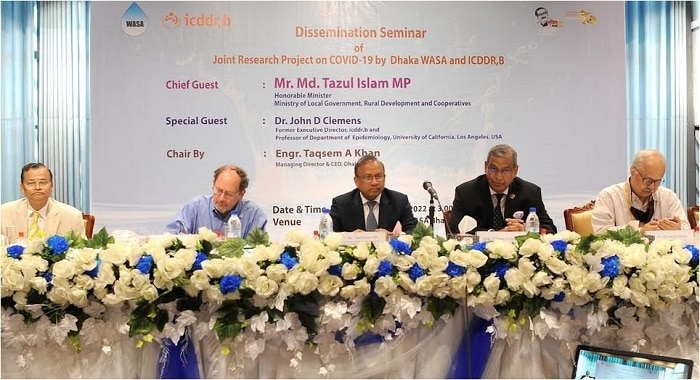The Pagla Sewage Treatment Plant was found to be effective in removing SARS-CoV-2 RNA from the raw sewage, according to a new study.
The findings of the study were disseminated at a seminar, jointly arranged by icddrb and the Dhaka Water Supply and Sewerage Authority (DWASA), at Buriganga Hall, WASA Bhaban in Karwan Bazar, Dhaka.
The study was concluded to look into the presence of the Covid-19 virus (SARS-CoV-2) in sewage and other contaminated surface water sources in and around Dhaka city, an icddrb press release said.
The shedding of the SARS-CoV-2 virus through human faces begins within three days of infection, which ultimately goes into the sewerage system. This may lead to the contamination of the environment if the sewage is not properly treated and discharged.
Thus, it is very important to understand this type of environmental contamination through sewage and other contaminated surface water sources in Dhaka city.
Accordingly, between September 2020 and January 2021, there were 22 sewage and 23 sludge samples collected from the DWASA’s Narinda, Basabo sewage pumping stations and Pagla sewage treatment plant (PSTP).
Additionally, two composite water and two sediment samples were collected from the Mitford point of the Buriganga river and under the Abdullahpur bridge of the Turag River.
A total of six samples (three water and three sediment samples) were also collected from three ponds, namely the Institute of Public Health (IPH) pond, Mirpur Mazar Pond and Shahidullah Hall pond on the campus of the University of Dhaka. The Shahidullah hall pond was selected as a control pond. All the samples were tested for the presence of SARS-CoV-2 by RT-qPCR assay and different physicochemical parameters.
Dr Sirajul Islam, Emeritus Scientist at icddrb and the Principal Investigator of the study, presented the findings.

